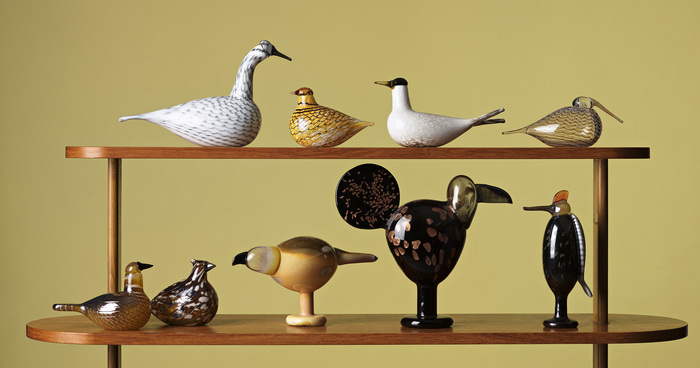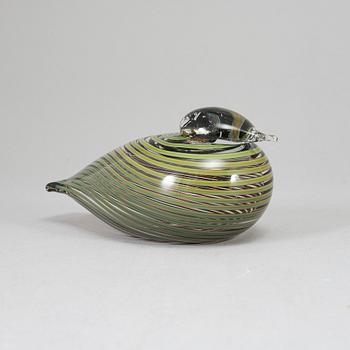Birds by Oiva Toikka
Bukowskis' now sells an extensive private collection of Oiva Toikka's well-known and appreciated glass birds. The collection consists of about fifty different birds, each with its own unique expression, shape and color theme. The person who gathered had a great interest in handicraft and glass art in particular, especially Nordic. The backbone of the collection, however, is made up of Oiva Toicka's glassbirds, which the person started collecting more than 25 years ago. The collection has a large width and contains several of his more famous birds. One example is the model "Flycatcher" - "Flycatchers" which was the first glassbird to fly out of Nuutajärvi Glassworks in 1972. The collection's width, however, does not contain all Oiva Toikka's models - over the years there were more than 300 models!
Oiva Toikka was born in 1931 and trained primarily as a potter. He had his first employment at Arabia and he made himself known there as "the artist who goes his own way". He found inspiration for his works in the objects of Finnish peasant culture and also in Roman and Greek antiques. The strict modernism that dominated much of Nordic design in the 20th century did not interest him at all; he only found it as an artistic limitation.
Oiva Toikka has made many different types of objects, but the glass birds belong to his more famous production. He is said to have started working with birds as a model because he felt that their shapes and colors were very well suited to translate to glass. In his work with the birds he was also given the opportunity to experiment with color and material combinations in an imaginative way, which is well expressed in many of the models.



















































































